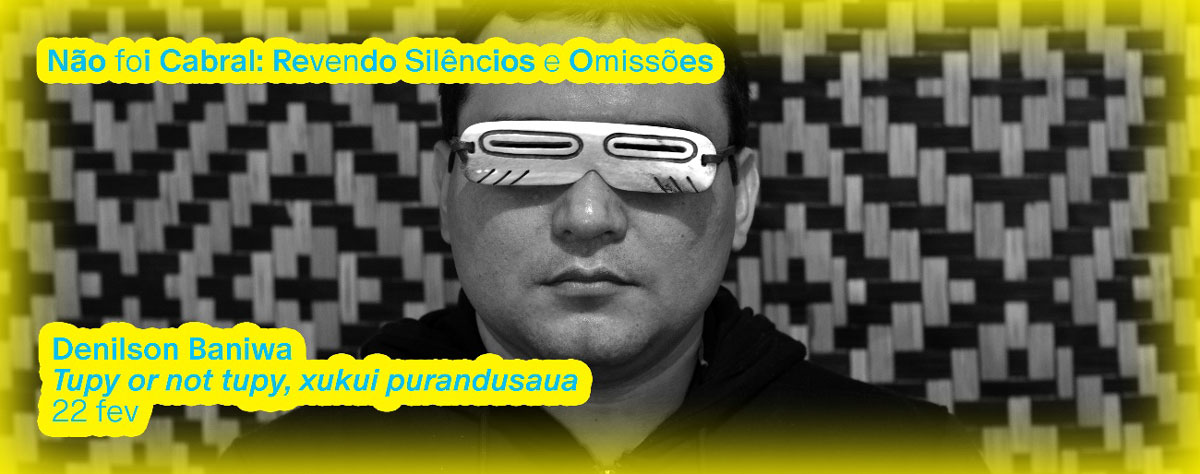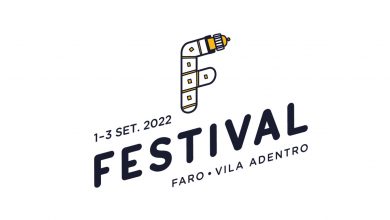- Open Class, on February 22nd, at 6:30 pm, at the School of Arts of the Catholic University in Porto
- Indigenous artist Denílson Baniwa talks about “Tupi or not Tupi, that is the question” in Porto
- Art and the strengthening of cosmological narratives as a historical rewriting of Brazil
“Tupi or not tupi, that’s the question” (“Tupy or not tupy, xukui purandusaua”), will be the theme of the conference led by indigenous artist Denílson Baniwa, an “anthropophagous” artist, who appropriates Western languages to decolonize them.
An event open to the public, organized by Escola das Artes, which takes place on February 22, at 6:30 pm, in the Ilídio Pinho Auditorium of the Universidade Católica Portuguesa in Porto.
Throughout his career, Denílson Baniwa has established himself as an artistic reference by opening paths for the visibility of indigenous populations in Brazilian territory, which is one of the most striking characteristics of his work. In 2024, upon being appointed as the official Brazilian representative, Tupi became the first indigenous curator of the Venice Biennale.
Born in the interior of Amazonas, in Barcelos, Denílson Baniwa belongs to the Baniwa people. He currently lives and works in Niterói, Rio de Janeiro. As an activist, he has been giving lectures, workshops and courses since 2015, working mainly in the south and southeast regions of Brazil and also in Bahia. His works range from images that portray his experience to their metaphorical use, where he appropriates Western icons to communicate the indigenous struggle. His speech is openly provocative, in order to encourage more indigenous people to join the fight against colonization and indigenization of the entire Brazilian system, from educational to cultural. His works can be physical, such as canvases, installations, mural paintings and performances, but they can also use less tangible means, such as technology or other digital means.
“I do not define myself as a creator of ‘indigenous art’ or arts ‘exclusive to indigenous themes’, but my creation process is always influenced by the universe in which I was born. I am not an indigenous artist, I am an artist with multiple perspectives who was born indigenous people,” assures Denílson Baniwa.
“Art is a complex and privileged way of provoking reflection and transforming consciousness,” says Nuno Crespo, director of the School of Arts at the Portuguese Catholic University.
It should be remembered that Tupi is no longer the most spoken language in Brazil, being replaced by Portuguese. However, it continues to be present in the daily lives of Brazilians through several Tupi names found in Brazilian geography and in the names of various animals and plants native to Brazil.
This conference is part of the cycle “It was not Cabral: reviewing silences and omissions”, a program co-curated by Lilia Schwarcz (Brazilian anthropologist and historian) and Nuno Crespo, which includes an agenda of concerts, conferences, exhibitions and performances, which will take place between February 16th and May 24th. The cycle is organized by Escola das Artes, in partnership with the University of São Paulo (Brazil) and Princeton University (USA).
Follow us on Facebook, Twitter, Instagram, Youtube, and TikTok and see the exclusive content for social networks.






